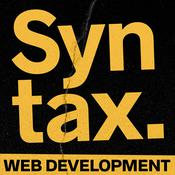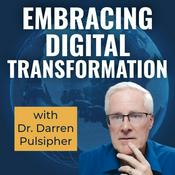80 épisodes
- Summary:
In this episode of Insurance Unplugged, host Lisa Wardlaw interviews Brittany Clements, Managing Director at American Family Ventures. They discuss the current state of the insurance market, particularly focusing on insurtech, life, and annuity sectors. Brittany shares insights on market trends, the importance of diversity in funding, and the dynamics of startup teams.
The conversation emphasizes the need for innovation in life and annuity, the significance of strong founder teams, and the ongoing challenges in securing funding for diverse entrepreneurs. Brittany also provides actionable advice for founders and highlights the importance of measured growth in startups.
Takeaways:
Brittany Clements leads American Family Ventures, focusing on insurtech innovation.
The venture capital market is showing positive signs, especially in exits.
Life and annuity sectors are often overlooked in funding opportunities.
Diverse teams in startups tend to outperform their counterparts.
Founders need a balance of selling and building skills.
Unit economics are crucial for sustainable business growth.
AI tools are often overhyped and can be easily replaced.
Investing in life and annuity can yield significant market opportunities.
Startups should focus on measured growth rather than growth at all costs.
Diversity in funding is still a significant gap in the industry.
Sound Bites:
"It's been fast and slow."
"Diverse teams outperform."
"Stop with all the meetings."
Keywords:
insurance, venture capital, insurtech, life insurance, annuities, diversity, funding, market trends, startup advice, Brittany Clements - In this episode of Insurance Unplugged, host Lisa Wardlaw and guest Steve Abel discuss the challenges and evolution of Software as a Service (SaaS) in the business landscape. They explore the symptoms of SaaS sprawl, the importance of data management, and the need for business leaders to trust their instincts when making technology decisions. The conversation also highlights the shift from traditional consulting to co-building solutions, emphasizing the value of collaboration between business and technology professionals. Steve shares insights on reclaiming the P&L in technology investments and the future of curated solutions versus custom solutions.
Takeaways
SaaS is facing significant challenges and may be considered broken.
The importance of understanding the right amount of SaaS for business needs.
Data management is critical in leveraging SaaS solutions effectively.
Business leaders should recognize symptoms of SaaS sprawl and prescription fatigue.
Trusting instincts is essential for making informed technology decisions.
The shift from consulting to co-building solutions is transforming the industry.
Reclaiming the P&L is crucial for assessing technology investments.
Curated solutions can be more effective than custom solutions.
Collaboration between business and technology professionals is key to success.
The future of technology in business lies in understanding and solving specific problems.
Sound Bites
"SaaS is broken or SaaS is dying."
"Don't give it away."
"You can swap them out."
"Why are we spending this much money?"
"Pay attention to your instincts."
"You seem like you do technology."
"Ask the hard questions."
"Trust your impressive instincts."
Chapters
00:00 Introduction to SaaS Challenges
03:09 The Evolution of SaaS and Its Impact
05:46 Identifying SaaS Sprawl and Its Symptoms
08:54 The Role of Data in SaaS Solutions
11:58 Recognizing Prescription Fatigue in Technology
15:04 The Importance of Instincts in Technology Decisions
18:00 The Shift from Consulting to Co-Building
21:05 Reclaiming the P&L in Technology Investments
24:08 Curated Solutions vs. Custom Solutions
27:11 The Future of Technology in Business
30:06 Call to Action for Business Leaders - Summary:
In this episode of Insurance Unplugged, host Lisa Wardlaw interviews Margeaux Giles, CEO and founder of Iris InsureTech. They discuss the challenges and nuances of building operational systems in the insurance industry, emphasizing the importance of transparency, trust, and effective data management.
Margeaux shares her journey from being a producer to a tech founder, highlighting the need for authentic transformation in the industry. The conversation delves into the complexities of understanding customer needs, the pitfalls of traditional data storage systems, and the innovative approaches Iris is taking to embed trust and verifiability in their technology. In this conversation, they discuss the evolving landscape of the insurance industry, focusing on the integration of technology, the importance of trust, and the challenges of implementing AI.
They explore the need for real-time decision-making and the generational mindset required for long-term success in the industry. The discussion highlights the risks associated with misusing technology terms and the importance of transparency in data management.
Takeaways:
Margeaux Giles has nearly 20 years of experience in the insurance industry.
Building operational systems requires understanding the real needs of the industry.
Transparency and trust are critical in the insurance value chain.
Many founders struggle to move from vision to execution.
Data processing is essential for effective insurance operations.
Traditional systems often serve as mere data repositories.
Iris InsureTech focuses on embedding trust at the data level.
Operational processing is different from data storage.
The insurance industry needs to evolve beyond outdated practices.
Effective data management can lead to better underwriting and risk management. We don't trust you.
The upside for a broker is massive.
We need to understand how to make business decisions in real time.
If you want to go fast and break things, be honest about your tech journey.
Stop saying that you're using a genetic AI.
Sound Bites:
"I am the epitome of the hot seat."
"What do you really need?"
"How do we understand that person?"
"It's a balancing act."
"You have to have firepower underneath that."
"That is not operational processing."
"You can't be human centric, transparent."
"We don't trust you."
"The upside for a broker is massive."
"If you want to go fast and break things..."
Keywords:
Insurance, InsureTech, Margeaux Giles, operational systems, transparency, data management, trust, technology, insurance industry, SaaS, insurance, technology, AI, real-time decision making, trust, risk management, innovation, data transparency, generational planning, brokerages - Summary
In this episode of Insurance Unplugged, host Lisa Wardlaw engages with Koli Perry, VP of Insurance at Koford, to discuss the transformative role of AI in the insurance industry. They explore the importance of building trustworthy AI systems, the challenges of integrating AI into existing infrastructures, and the need for a paradigm shift in how the industry approaches technology. The conversation emphasizes the necessity of designing systems with accountability and transparency in mind, as well as the evolving landscape of distribution in insurance. Koli shares insights on operationalizing AI, the role of regulators, and the importance of being proactive in adopting new technologies.
Takeaways
AI in insurance requires a strong infrastructure of trust.
The industry must rethink how it approaches AI integration.
Trust and auditability should be built into AI systems from the start.
Regulators play a crucial role in the adoption of AI in insurance.
Event-native systems are essential for effective AI integration.
Operationalizing AI requires a shift in mindset and operating models.
Distribution in insurance is lagging behind technological advancements.
AI is a leveler that can disrupt traditional distribution models.
Complacency in adopting AI will hinder progress in the industry.
Design AI systems with the assumption they will be scrutinized.
Chapters
00:00 Introduction to AI in Insurance
05:52 Rethinking AI: From Trust to Prove It
11:57 Event-Native Systems and AI Integration
18:03 The Future of Distribution in Insurance
24:00 Conclusion and Final Thoughts
Plus de podcasts Technologies
Podcasts tendance de Technologies
À propos de Insurance Unplugged with Lisa Wardlaw
"Insurance Unplugged," offers a candid look behind the scenes of the insurance industry. Host Lisa Wardlaw brings a wealth of experience from numerous C-suite roles, including CFO, COO, CSO, and Chief Digital Officer within the insurance sector. She interviews C-suite guests about the real #nohype practical matters in insurance from applying AI to cutting through the fog on developing trends for the insurance industry at large.
Site web du podcastÉcoutez Insurance Unplugged with Lisa Wardlaw, Lex Fridman Podcast ou d'autres podcasts du monde entier - avec l'app de radio.fr

Obtenez l’app radio.fr gratuite
- Ajout de radios et podcasts en favoris
- Diffusion via Wi-Fi ou Bluetooth
- Carplay & Android Auto compatibles
- Et encore plus de fonctionnalités
Obtenez l’app radio.fr gratuite
- Ajout de radios et podcasts en favoris
- Diffusion via Wi-Fi ou Bluetooth
- Carplay & Android Auto compatibles
- Et encore plus de fonctionnalités


Insurance Unplugged with Lisa Wardlaw
Scannez le code,
Téléchargez l’app,
Écoutez.
Téléchargez l’app,
Écoutez.







































